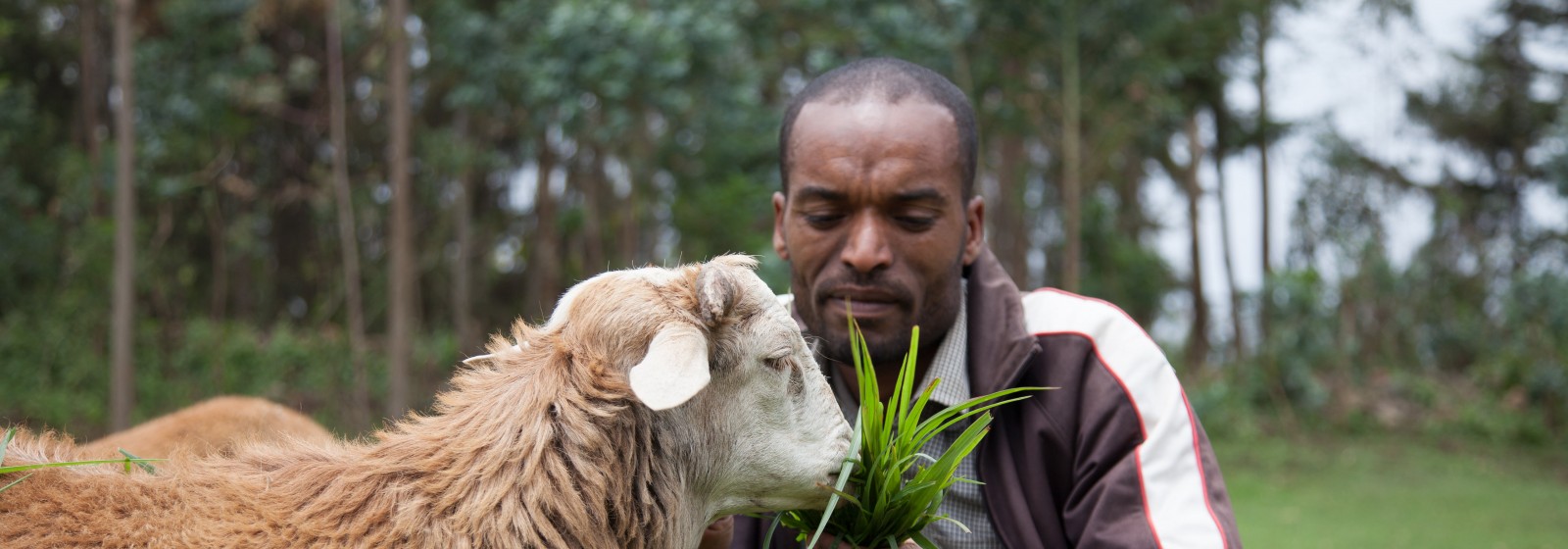Understanding and meeting the needs of farming communities and the animals they care for can help improve both livelihoods and animal welfare.
With the support of the CGIAR Research Program on Livestock, a team of researchers developed a community conversation module on animal welfare. The module uses the community conversation approach to address livestock and community needs.
At the start of the process, the team visited one of the program sites in Doyogena to conduct a scoping study on animal welfare issues. This new module will facilitate continued follow-up on the previous topics discussed such as gender relations in livestock management and prevention of zoonotic diseases, and continue the capturing of change stories from the previous community conversations.
The livestock program team has now developed a module on farm animal welfare to work with community groups as well as animal health service providers to collaboratively address the needs of their animals such as feed, shelter, health and natural behaviour. To develop the module, the team held discussions with local research-and-development partners and interviewed people at their homesteads or farms to understand their perceptions and beliefs about the welfare of their animals and their needs.
To test the module, the team facilitated community conversations in Yabello (agro-pastoral community in Borana Zone of Oromia Region) and Menz Gera (highland mixed-farming community in North Shoa Zone of Amhara Region). In both sites, providing animal health services and adequate feed to animals was the primary concern of men and women community members. In Yabello, access to water was also a consistently mentioned challenge.
In both sites, community members described animal welfare as focusing on the biological needs of animals such as good feed, water and health; but there was also a strong acknowledgment of the behavioural needs of animals, as well as their ability to experience emotional states.
When it comes to practical animal needs, the common issues raised include access to feed, animal health support and water. In the conversations, there was a strong acknowledgment of the interdependence between animals and humans. A male farmer in Menz Gera said, ‘to benefit from animals, we have to take care of them. It is a give and take relationship’. A woman participant also said, ‘The existence of an animal is its owner’, meaning it is the animal owner who provides care and protection to animals.
While there is a good knowledge of animal welfare and all community groups could identify where improvements were needed, there was a major knowledge and practice gap when it came to addressing these issues. This gap extends to the veterinary support services that work with the farmers as well.
Understanding animal nutritional needs, improving animal handling by understanding animal behaviour, increasing access to water and improving castration and shearing practices are useful first steps to improve animal welfare and farm productivity. The community conversations aim to not only identify and analyse these issues, but also encourage community groups to develop practical strategies to solve them by working with local service providers.
The animal welfare module will be scaled to other livestock program sites through the interventions of local research and development partners. Uptake and scaling of the community conversation approach by partners requires capacity development support through training, coaching, and documentation of change stories.
Download the manual: Community conversation on animal welfare: A guide to facilitators
